
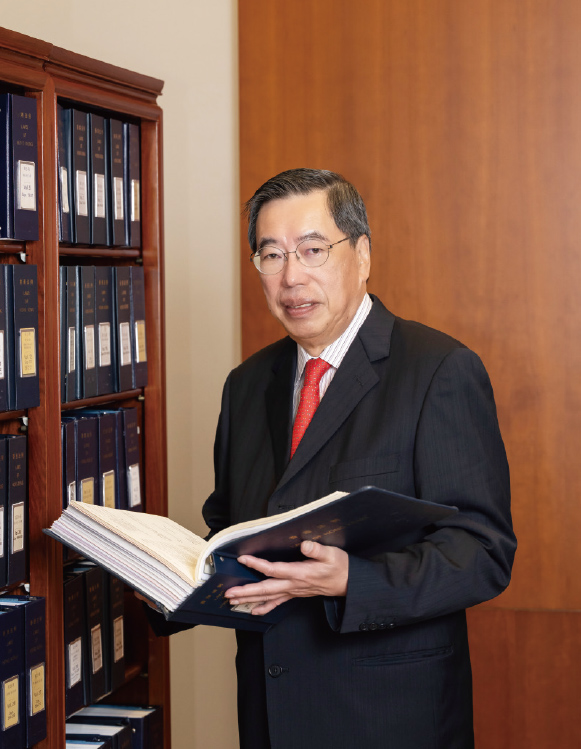 Andrew Leung
Andrew LeungSafeguarding National Security is Our Duty
Regarding the 7th LegCo’s swift and efficient scrutiny and passage of the Safeguarding National Security Bill and the completion of the Basic Law Article 23 legislation with the 6th-term HKSAR Government, Leung described the enactment as the long-awaited final piece of the jigsaw puzzle in Hong Kong’s efforts to safeguard national security.
In Leung’s view, legislating for Article 23 is a historic mission that has been delayed for nearly 27 years. The Government’s release of the public consultation document in this regard at the end of January this year marked the official start of the legislation.
Intensive work schedule for earliest legislation
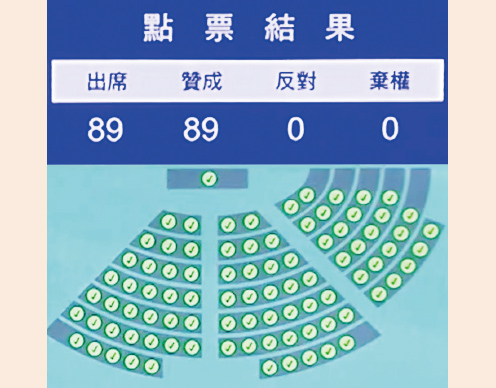
Leung recalled that while the Government was conducting the public consultation on Article 23 legislation, LegCo simultaneously studied policy matters relating to the legislation through a Subcommittee in view of the urgency to plug the loophole in national security legislation. After the Bill was introduced to LegCo for its first and second readings at the Council meeting on 8 March, the Subcommittee was immediately turned into the Bills Committee and conducted marathon meetings that totalled nearly 50 hours to comprehensively examine the Bill on a clause-by-clause basis within a reasonable timeframe.
Leung praised the Bills Committee for scrutinizing the legislation in an orderly manner despite the intensive meetings that were held. LegCo Members raised nearly 2,000 questions and suggestions that covered a diverse and wide range of topics, including details of the legislation and scenarios that may concern the public to the Government. At the same time, he pointed out that the Government responded with great sincerity, refuting misconceptions and allaying public concerns. The Government also accepted many constructive suggestions from LegCo Members and proposed multiple amendments.
Racing against time with special meeting
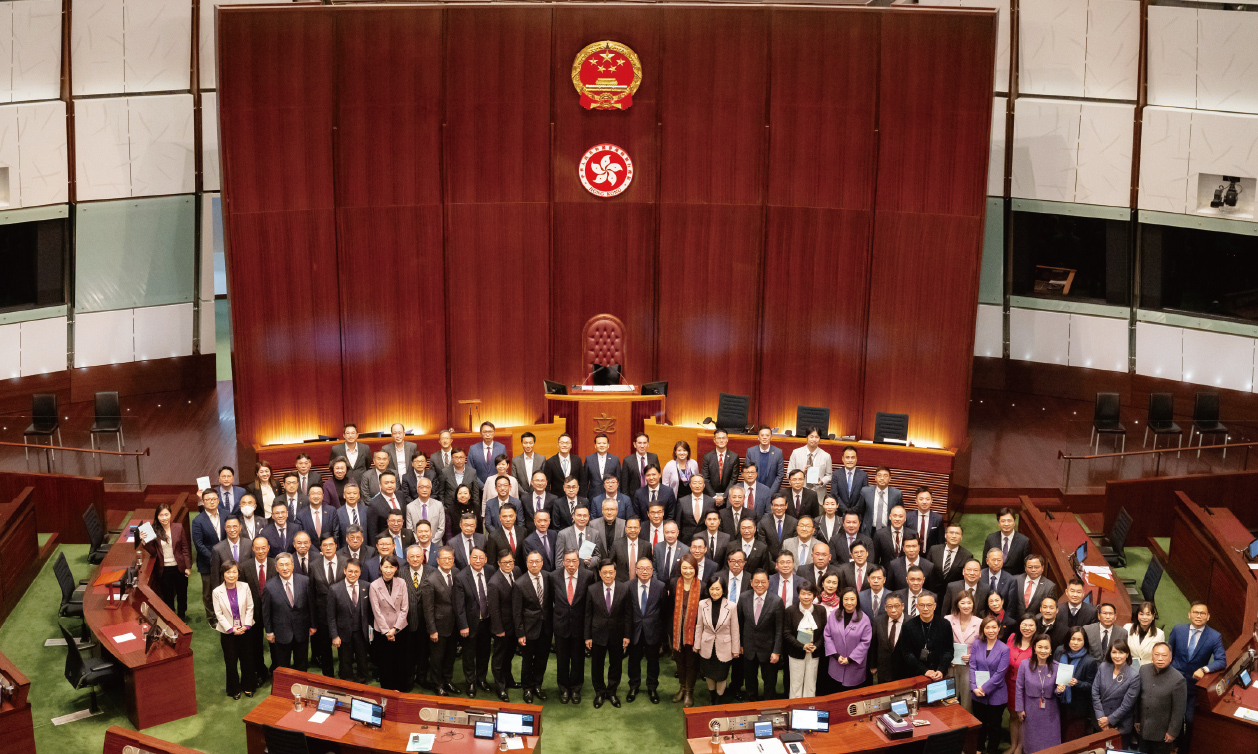 Leung recalled that to race against time, LegCo convened another Council meeting on 19 March to resume the second reading debate on the Safeguarding National Security Bill. This special meeting only focused on the remaining legislative procedures of the Bill. He said the merit of such arrangement was to enable LegCo Members and Government officials to focus on the Bill. “I am also grateful to the LegCo Secretariat for tirelessly assisting in the deliberation work and preparing meeting documents, as well as meticulously arranging meals, allowing Members and Government officials to have 'four meals a day’ during the deliberation and focus on their work.”The Bill was eventually passed unanimously with 89 votes by all Members of LegCo. Leung said that as the President of LegCo, he generally does not vote, but he exercised his right to vote this time to show solidarity since he felt that everyone has a responsibility on safeguarding national security. “I was filled with emotions the moment the Bill was passed unanimously, witnessing Members and Government officials gave their best and finally lived up to the country’s expectation.”
Leung recalled that to race against time, LegCo convened another Council meeting on 19 March to resume the second reading debate on the Safeguarding National Security Bill. This special meeting only focused on the remaining legislative procedures of the Bill. He said the merit of such arrangement was to enable LegCo Members and Government officials to focus on the Bill. “I am also grateful to the LegCo Secretariat for tirelessly assisting in the deliberation work and preparing meeting documents, as well as meticulously arranging meals, allowing Members and Government officials to have 'four meals a day’ during the deliberation and focus on their work.”The Bill was eventually passed unanimously with 89 votes by all Members of LegCo. Leung said that as the President of LegCo, he generally does not vote, but he exercised his right to vote this time to show solidarity since he felt that everyone has a responsibility on safeguarding national security. “I was filled with emotions the moment the Bill was passed unanimously, witnessing Members and Government officials gave their best and finally lived up to the country’s expectation.”
Unveiling a new chapter to herald a new milestone
Regarding some people’s concern that the Article 23 legislation will damage Hong Kong’s business environment, Leung said that such concern is overstated. He emphasized that the Safeguarding National Security Bill protects the basic human rights and freedoms enjoyed by Hong Kong residents in accordance with the Basic Law and relevant international conventions. He also stressed that the legislation was not targeted at any country or individual, but to create a more favourable environment for foreign investors to do business and invest in Hong Kong. He added that no foreign investors have been detained since the implementation of the National Security Law and there is absolutely no arbitrary arrest. Leung said that after the Safeguarding National Security Bill took effect upon gazettal, Hong Kong now enjoys a safer and more stable environment enabling the Government to focus on vigorously pursuing economic growth. LegCo and the Government are joining hands to improve people’s livelihood, make Hong Kong a better place to live and work, and enhance people’s sense of belonging and happiness.
 Martin Liao
Martin LiaoImperative to Legislate on Article 23 As Soon As Possible
Liao pointed out that although the National Security Law has been implemented, it does not completely overlap with the legislation of Article 23 of the Basic Law as it does not cover five types of offences. Therefore, the legislation is necessary to plug such a shortcoming of Hong Kong in safeguarding national security.
Fastest legislation in the most efficient way
The Government released a public consultation document on the Article 23 legislation at the end of January this year. Liao said that at that time he was paying close attention to the trend of public opinion. As it turned out, the public was more supportive of the legislation than he thought it would be. The trend of public opinion made him and his colleagues in the LegCo feel the urgency to get the legislation done.
In view of this, Liao proposed before the end of the public consultation to set up a Subcommittee in the LegCo to commence the study of matters relating to the Article 23 legislation as early as possible. Also, the Subcommittee would immediately become a Bills Committee once the Bill received its first reading in the LegCo so that the Bill could be scrutinised at the earliest.
Working tirelessly to perform duty in crunch time
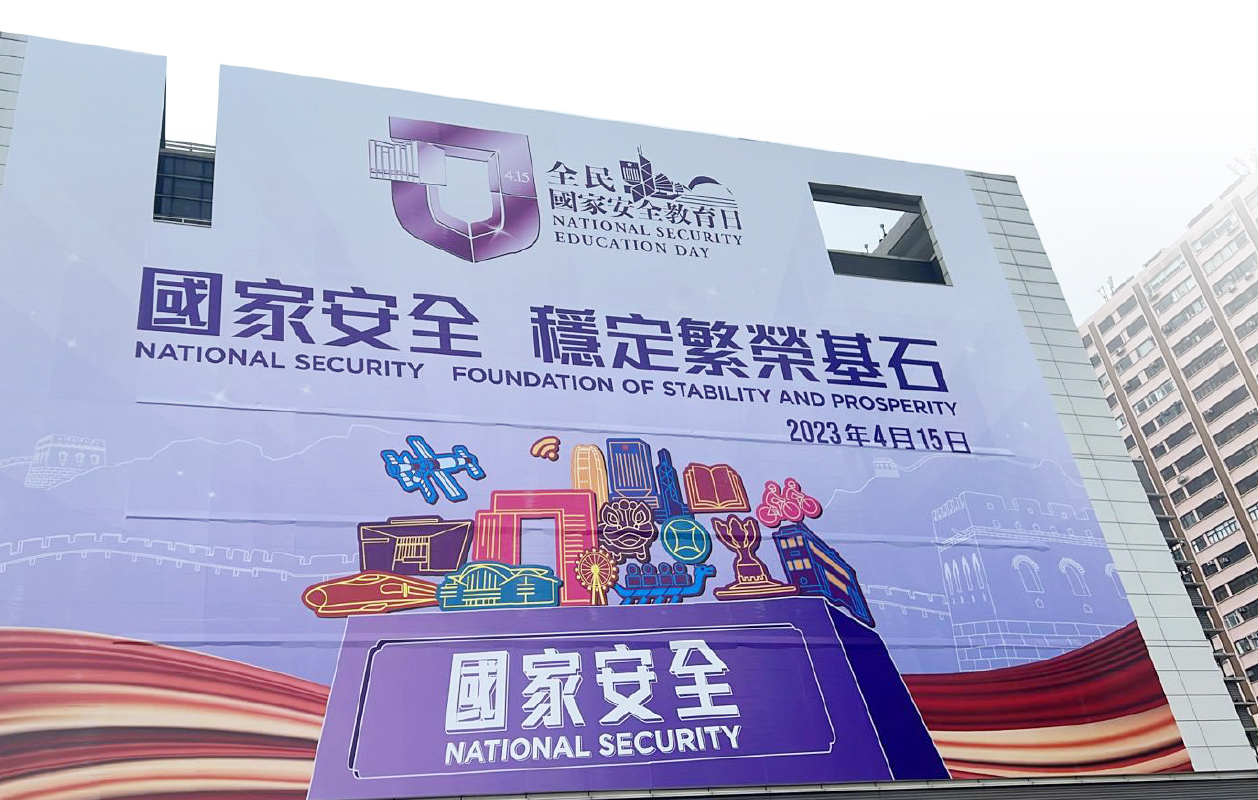
However, the price of this approach was an extremely intensive work schedule. Liao recalled that after the Government gazetted the Safeguarding National Security Bill on 8 March, the LegCo held an additional meeting that morning for the first and second readings of the Bill. The Bills Committee also met immediately that afternoon to scrutinise the Bill clause by clause. The Subcommittee and the Bills Committee held a total of 25 meetings, spending a total of nearly 50 hours to scrutinise the Bill. Liao pointed out that it was very rare that the scrutiny of the clauses resulted in 91 amendments, which reflects the conscientiousness and prudence of the process.
Liao had long expected that the legislative process would inevitably be attacked by some Western countries and media, so he had to make overall planning and arrangements in terms of time schedule. When discussing with LegCo President Leung, they could only visualise a reasonable timetable out of thin air before constantly adjusting it. He also communicated closely with the Government and made suggestions to ensure that the work was completed as scheduled.
Legislation will usher in stability thanks to all parties for their cooperation
Liao believes that the completion of the Article 23 legislation hinged on the cooperation of all parties. First, he thanked all the members of the Bills Committee. Recalling the time when he was first looking for members to join the committee, he had stated that the work would be extremely intensive and they would have to clear their schedule for the coming period to perform their duties. As it turned out, the committee members not only kept their promises, but also performed their duties very diligently. For several days running, they were able to focus on deliberate, in-depth and comprehensive scrutiny of every clause.
In addition, Liao thanked the heads of various bureaus and departments and the government team for their perseverance and commitment to fully cooperate with the Bills Committee in its work, answering nearly 2,000 questions raised by members and adopting many suggestions made by the Bills Committee with a receptive mindset. Liao also described the LegCo Secretariat team as the hero behind the scenes for providing professional support and meticulous care during this period. “Of course, I must also thank LegCo President Leung for his infinite support behind us.”
Regarding some people’s accusations that the legislation damages investor confidence, he pointed out that this is purely a false proposition. This is because the relevant provisions have clearly stipulated the elements of offences and exemption clauses. Moreover, compared to the national security regulations of many foreign countries, Hong Kong’s legislation now places more emphasis on protecting human rights and freedoms. Looking ahead, Liao believes that following the Article 23 legislation, Hong Kong’s business and investment environments will only become more stable, safer and more transparent. He hopes that Hong Kong will be able to go burden-free from now on and focus on developing the economy and improving people’s livelihood.
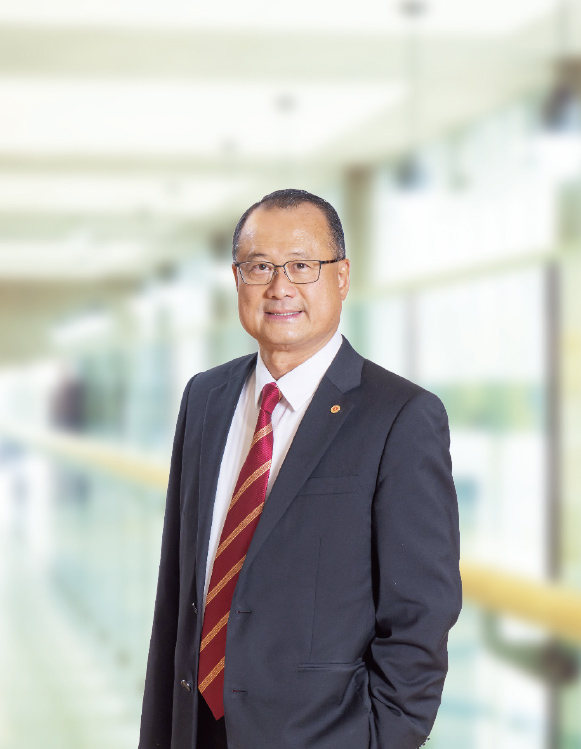 Jonathan Choi
Jonathan Choi
Full Support for Legislation That is Better for Business Environment
“Hong Kong’s business community generally supports the legislation on Article 23 of the Basic Law, and this issue that has plagued Hong Kong for nearly 27 years has finally come to an end.” Choi has always been convinced that the Article 23 legislation can effectively plug national security loopholes to provide an important foundation for building a more stable business environment.
Strengthen rule of law-based protection to focus on economic development
Choi believes that the people of Hong Kong have realized the importance of national security since experiencing the Hong Kong version of the color revolution and violent protests in 2019. “Basically, when industrial and commercial enterprises and investors conduct business operations and project investments, it is crucial to have a stable political and economic environment as well as protection based on the rule of law in the region. Therefore, the combination of the National Security Law and Article 23 will enable the HKSAR Government, the Hong Kong public and foreign investors to focus on economic development.”
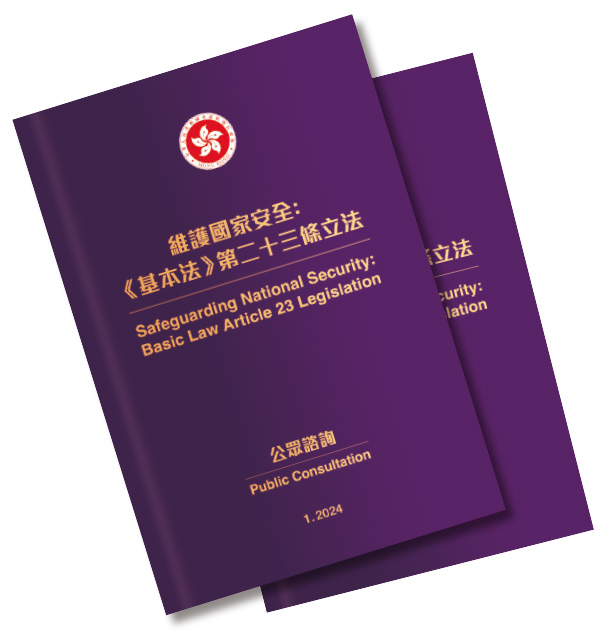 Some people worry that the implementation of the National Security Law and Article 23 legislation will severely affect Hong Kong’s economy and business confidence. Choi disagrees. “For example, total bank deposits in Hong Kong grew by 5.1% in 2023; in the same year, the number of start-ups increased by 270 to a record high of 4,300. In addition, the number of companies operating in Hong Kong with their parent companies located outside Hong Kong totaled more than 9,000, similar to the figure for 2019. This indicates that foreign companies have not withdrawn in large numbers due to the National Security Law.”
Some people worry that the implementation of the National Security Law and Article 23 legislation will severely affect Hong Kong’s economy and business confidence. Choi disagrees. “For example, total bank deposits in Hong Kong grew by 5.1% in 2023; in the same year, the number of start-ups increased by 270 to a record high of 4,300. In addition, the number of companies operating in Hong Kong with their parent companies located outside Hong Kong totaled more than 9,000, similar to the figure for 2019. This indicates that foreign companies have not withdrawn in large numbers due to the National Security Law.”
Choi stressed that when formulating the details of the legislative provisions for the Article 23 legislation, the HKSAR Government has fully considered the close convergence, compatibility and complementarity with the local common law system and the existing National Security Law to form a legal system that effectively safeguards national security. Hong Kong will be better able to continue attracting overseas companies to domicile here.
Deepening public awareness through active publicity and explanation
Choi said that the HKSAR Government is now actively carrying out explanatory work to help the business community and all sectors of society deepen their understanding of the details of the provisions. This is so that all stakeholders can understand and grasp the reasons for the legislation and the contents of the provisions. “Chief Executive John Lee recently explained the need for the Article 23 legislation on National Security Education Day. Chris Tang, Secretary for Security and Paul Lam, Secretary for Justice also explained the ordinance to the general public and listened to public opinion.”
Choi suggested that going forward, the authorities can continue to take the initiative to remove any misunderstandings, doubts or even prejudices that may arise regarding the new ordinance. They should also eliminate all kinds of malicious smears and false accusations. He believes that they will eventually gain more recognition from the international community.




